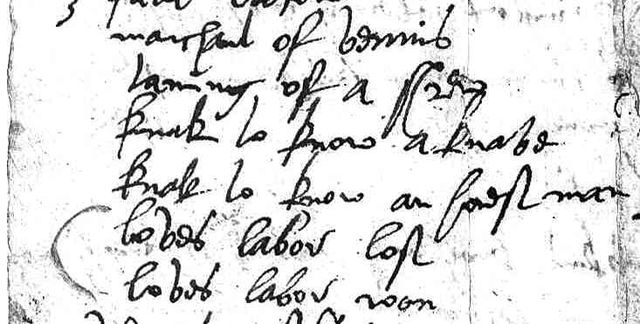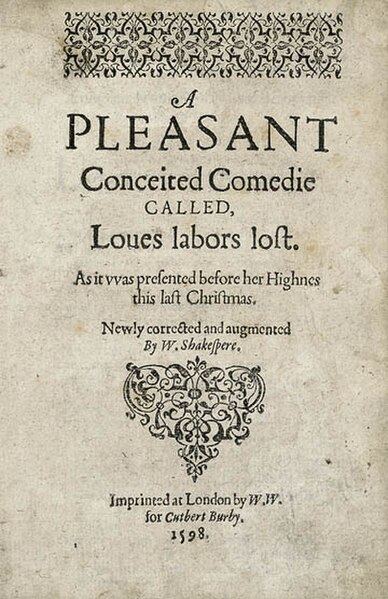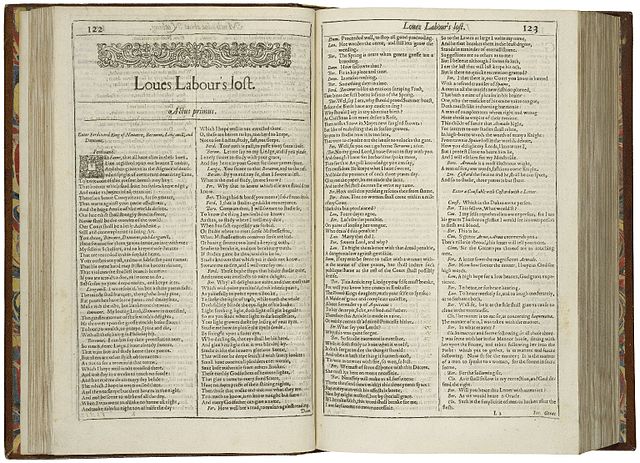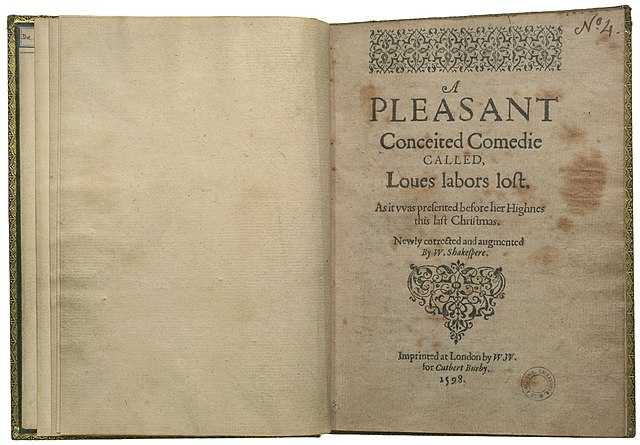Love's Labour's Won is a lost play attributed by contemporaries to William Shakespeare, written before 1598 and published by 1603, though no copies are known to have survived. Scholars dispute whether it is a true lost work, possibly a sequel to Love's Labour's Lost, or an alternative title to a known Shakespeare play.
The only known published reference to Love's Labour's Won in Palladis Tamia
Partial list of plays from Christopher Hunt's inventory. From top: marchant of vennis, taming of a shrew, knak to know a knave, knak to know an honest man, loves labor lost, loves labor won.
Love's Labour's Lost is one of William Shakespeare's early comedies, believed to have been written in the mid-1590s for a performance at the Inns of Court before Queen Elizabeth I. It follows the King of Navarre and his three companions as they attempt to swear off the company of women for three years in order to focus on study and fasting. Their subsequent infatuation with the Princess of France and her ladies makes them forsworn. In an untraditional ending for a comedy, the play closes with the death of the Princess's father, and all weddings are delayed for a year. The play draws on themes of masculine love and desire, reckoning and rationalisation, and reality versus fantasy.
Title page of the first quarto (1598)
Love's Labour's Lost, Act IV, Scene 3, by Thomas Stothard (c. 1800)
The first page of the play in the First Folio (1623)
Frontispiece from Love's Labour's Lost, 1598 from the University of Edinburgh Heritage Collection






